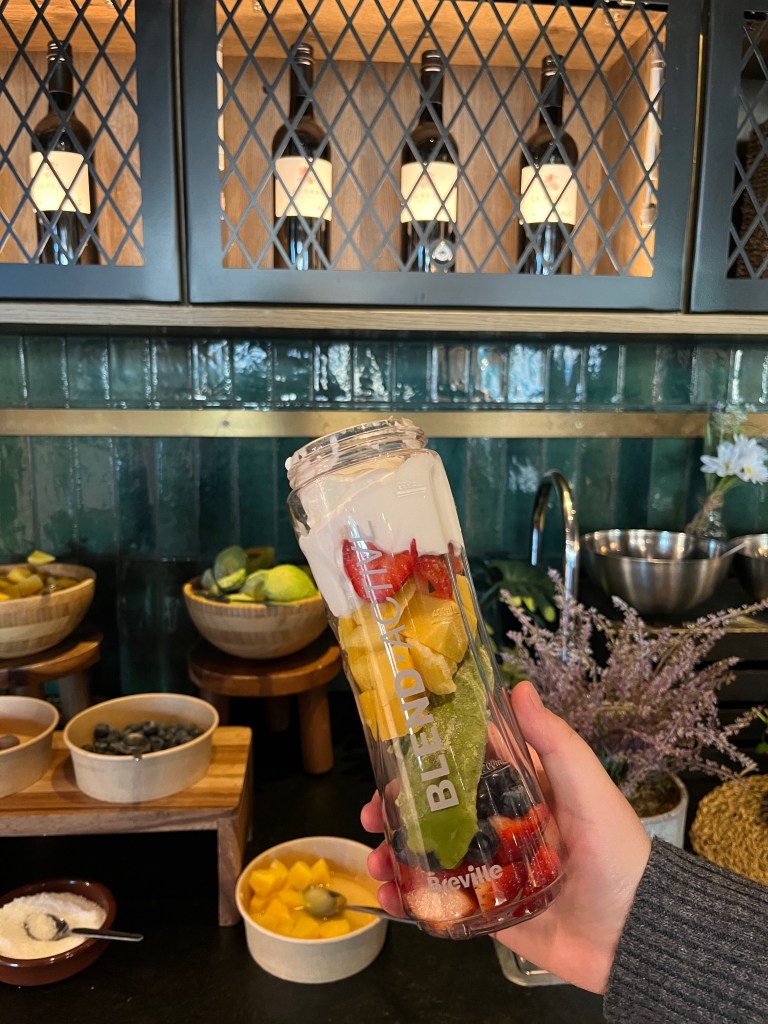University Mental Health Day, organised by Student Minds, is happening on March 13th, 2025, bringing together university communities to prioritise mental health and create lasting changes for students’ wellbeing.
An often overlooked aspect of student wellness is the connection between diet and stress, so our partner Venner Nutrition has written this guest blog to give you all the details you need to improve your mental health through good nutrition.
With the pressures of academics and social life on campus, what we eat can significantly impact our ability to manage stress and maintain mental health. Let’s explore how students can nourish their bodies and minds effectively.

Understanding Stress
Stress is a natural reaction to challenges, triggering various physical responses in our bodies. Cortisol, known as the “stress hormone,” is a key player in this process. While some stress can be motivating, and even very good for you, long-term stress and high cortisol levels can harm both mental and physical health.
The Role of Diet
Research shows that our diet directly influences our stress levels. Foods high in sugar, refined carbs, and saturated fats can worsen stress by causing inflammation and hormonal imbalances. Conversely, a diet rich in whole foods—like fruits, veggies, lean proteins, and healthy fats—provides nutrients that support mood and resilience against stress.
Managing Cortisol Levels
Certain foods can help regulate cortisol levels and promote relaxation. Omega-3 fatty acids in fish and flax seeds, as well as antioxidants in berries, dark chocolate, and green tea, are beneficial for managing stress.

Staying Organised
During stressful times, such as exams, staying organised with meals is crucial. Planning balanced meals, stocking up on nutritious snacks, and sticking to regular eating times can offer stability and control amid chaos. Establishing a meal routine also helps regulate appetite, energy, and mood.
Avoiding Junk Food
Although tempting, relying on junk food during stress can worsen the situation. These foods, high in sugars and unhealthy fats, disrupt blood sugar levels, leading to fatigue and irritability. Long-term consumption of junk food is also linked to mental health issues like depression and anxiety.
By being mindful of what we eat and making healthy choices, students can better manage stress and prioritise their mental wellbeing, especially during challenging times like exam season.
Do’s and Don’ts
To conclude, here is a checklist of do’s and don’ts to support your stress management with nutrition. Be sure to save them for when you need a reminder to keep calm and eat your veggies.
DO
- Prioritise whole foods; plenty of fruits, vegetables, whole grains, lean proteins, and healthy fats
- Stay hydrated; aim for 8-10 glasses per day
- Include stress-reducing foods; fatty fish (salmon, mackerel), nuts and seeds, berries, dark leafy greens, and dark chocolate
- Plan and prepare; stay organised with your food during stressful periods by planning and preparing meals ahead of time
- Seek Support: Don’t hesitate to reach out to your university or GP for support if you’re struggling with stress or your relationship with food.

DON’T
- Rely Solely on Processed Foods; those high in sugar, unhealthy fats, and artificial ingredients
- Overconsume Stimulants: Limit your intake of stimulants such as caffeine and sugary energy drinks
- Skip Meals: Irregular eating patterns can disrupt blood sugar levels, increase feelings of irritability and fatigue, and make it harder to concentrate and manage stress
- Neglect self-care practices such as adequate sleep, regular physical activity, and stress management techniques, which complement a healthy diet
- Compare your diet or eating habits to those of others. Everyone’s nutritional needs and preferences are unique, so focus on nourishing your body in a way that feels right for you


